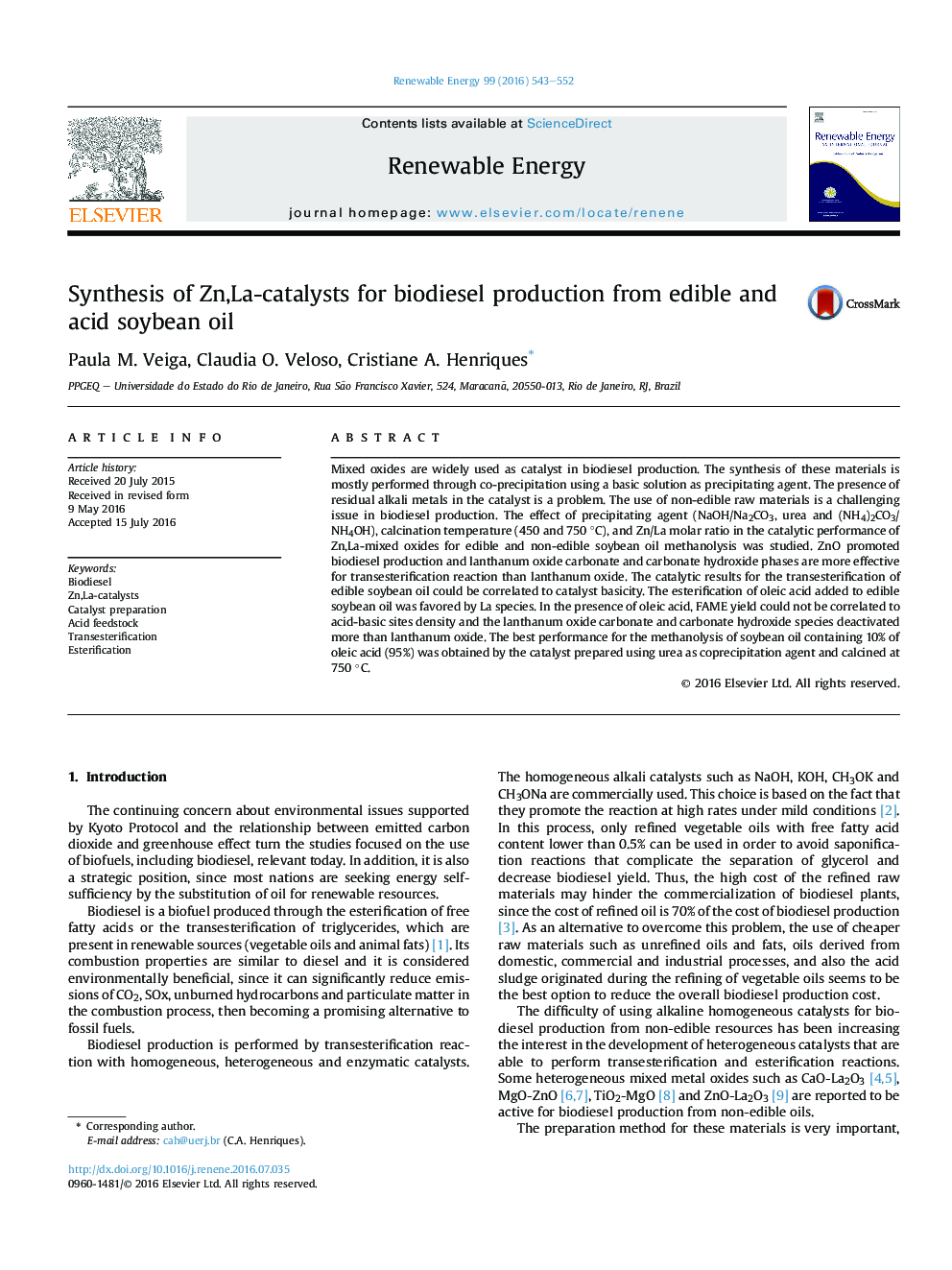| Article ID | Journal | Published Year | Pages | File Type |
|---|---|---|---|---|
| 6765602 | Renewable Energy | 2016 | 10 Pages |
Abstract
Mixed oxides are widely used as catalyst in biodiesel production. The synthesis of these materials is mostly performed through co-precipitation using a basic solution as precipitating agent. The presence of residual alkali metals in the catalyst is a problem. The use of non-edible raw materials is a challenging issue in biodiesel production. The effect of precipitating agent (NaOH/Na2CO3, urea and (NH4)2CO3/NH4OH), calcination temperature (450 and 750 °C), and Zn/La molar ratio in the catalytic performance of Zn,La-mixed oxides for edible and non-edible soybean oil methanolysis was studied. ZnO promoted biodiesel production and lanthanum oxide carbonate and carbonate hydroxide phases are more effective for transesterification reaction than lanthanum oxide. The catalytic results for the transesterification of edible soybean oil could be correlated to catalyst basicity. The esterification of oleic acid added to edible soybean oil was favored by La species. In the presence of oleic acid, FAME yield could not be correlated to acid-basic sites density and the lanthanum oxide carbonate and carbonate hydroxide species deactivated more than lanthanum oxide. The best performance for the methanolysis of soybean oil containing 10% of oleic acid (95%) was obtained by the catalyst prepared using urea as coprecipitation agent and calcined at 750 °C.
Related Topics
Physical Sciences and Engineering
Energy
Renewable Energy, Sustainability and the Environment
Authors
Paula M. Veiga, Claudia O. Veloso, Cristiane A. Henriques,
